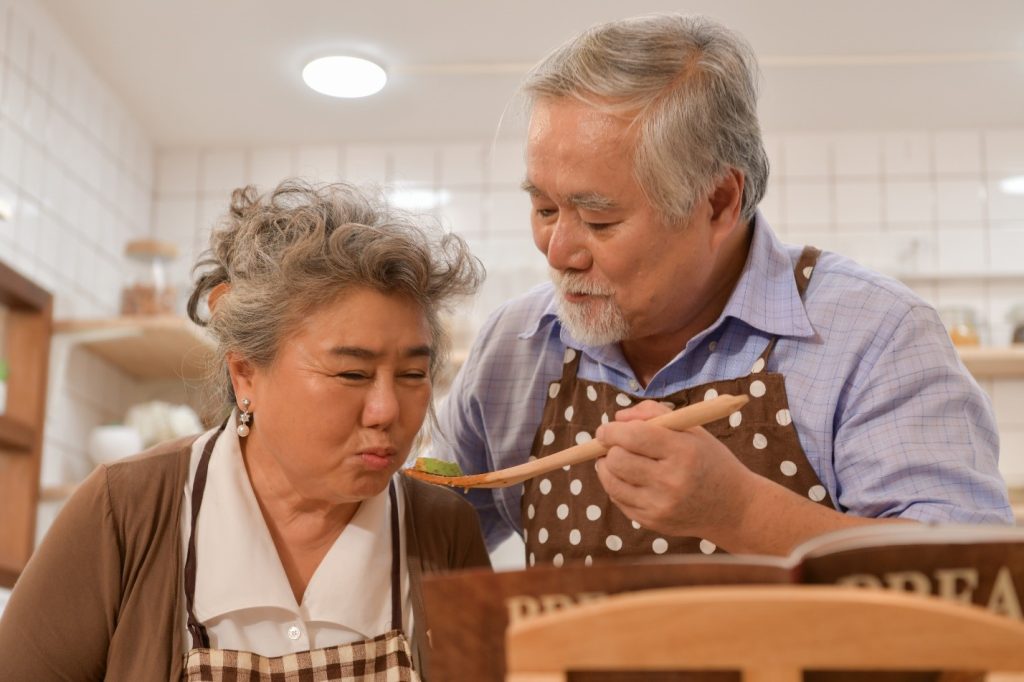Healthy cooking and nutrition for seniors

As we age, maintaining a healthy diet becomes increasingly important. Proper nutrition can help seniors stay active, maintain a healthy weight, and reduce the risk of chronic diseases. Here are some key points to consider when it comes to healthy cooking and nutrition for seniors.
Importance of Nutrition for Seniors
Good nutrition is essential for seniors to maintain their health and well-being. As we age, our bodies undergo various changes, including a decrease in metabolism, changes in taste and smell, and a reduction in muscle mass. These changes can affect our nutritional needs and make it more challenging to get the necessary nutrients.
Key Nutrients for Seniors
- Protein: Protein is crucial for maintaining muscle mass and strength. Seniors should aim to include lean protein sources such as chicken, fish, beans, and legumes in their diet.
- Calcium and Vitamin D: These nutrients are vital for bone health. Dairy products, leafy greens, and fortified foods are excellent sources of calcium, while sunlight exposure and fortified foods can provide vitamin D.
- Fiber: Fiber aids in digestion and helps prevent constipation. Whole grains, fruits, vegetables, and legumes are rich in fiber.
- Healthy Fats: Healthy fats, such as those found in avocados, nuts, seeds, and olive oil, are essential for brain health and overall well-being.
- Vitamins and Minerals: A variety of vitamins and minerals, including vitamin B12, potassium, and magnesium, are important for seniors. A balanced diet with plenty of fruits and vegetables can help meet these needs.
Healthy Cooking Tips for Seniors
- Plan Balanced Meals: Ensure each meal includes a balance of protein, carbohydrates, and healthy fats. This can help maintain energy levels and support overall health.
- Use Fresh Ingredients: Fresh fruits, vegetables, and whole grains are packed with nutrients. Try to incorporate these into your meals as much as possible.
- Limit Processed Foods: Processed foods often contain high levels of sodium, sugar, and unhealthy fats. Opt for whole, unprocessed foods whenever possible.
- Stay Hydrated: Seniors are at a higher risk of dehydration. Make sure to drink plenty of water throughout the day.
- Adjust Portion Sizes: As metabolism slows with age, seniors may need fewer calories. Adjust portion sizes to avoid overeating while still getting the necessary nutrients.
Easy and Nutritious Recipes for Seniors
- Vegetable Stir-Fry: A quick and easy meal that can be customized with your favorite vegetables and lean protein sources like chicken or tofu. Serve with brown rice or quinoa for added fiber.
- Salmon and Veggie Foil Packets: Place a salmon fillet and a mix of vegetables (such as bell peppers, zucchini, and cherry tomatoes) on a piece of foil. Drizzle with olive oil, season with herbs, and bake until the salmon is cooked through.
- Lentil Soup: A hearty and nutritious soup made with lentils, carrots, celery, and tomatoes. Lentils are a great source of protein and fiber.
- Greek Yogurt Parfait: Layer Greek yogurt with fresh berries, a drizzle of honey, and a sprinkle of granola for a delicious and nutritious breakfast or snack.
- Oatmeal with Fruit and Nuts: Cook oats with milk or water and top with your favorite fruits and a handful of nuts for a fiber-rich breakfast.
Overcoming Common Challenges
- Loss of Appetite: Seniors may experience a loss of appetite due to various factors. To combat this, try eating smaller, more frequent meals and incorporating nutrient-dense snacks.
- Difficulty Chewing or Swallowing: Soft, easy-to-chew foods like soups, stews, and smoothies can be helpful. Avoid tough, hard-to-chew foods.
- Limited Mobility: If mobility is an issue, consider using kitchen tools and gadgets that make cooking easier, such as electric can openers and food processors.
- Budget Constraints: Eating healthy doesn’t have to be expensive. Plan meals around affordable, nutrient-dense foods like beans, lentils, and seasonal produce.
Conclusion
Healthy cooking and nutrition are vital for seniors to maintain their health and quality of life. By focusing on nutrient-rich foods, balanced meals, and easy-to-prepare recipes, seniors can enjoy delicious meals that support their well-being. Remember, it’s never too late to make positive changes to your diet and lifestyle.
References
[1] Healthy Meal Planning: Tips for Older Adults
[2] 20 Nutritious and Easy Recipes for Senior Nutrition – A Place for Mom
[3] Nutrition for Older Adults: Why Eating Well Matters as You Age








 Use current location
Use current location









